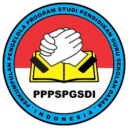Analisis Kemandirian Belajar Mahasiswa Sistem Informasi Pada Mata Kuliah Statistika Inferensial
DOI:
https://doi.org/10.35568/naturalistic.v6i1.952Keywords:
Inferensial; Kemandirian; Motivasi; Pendidikan; Statistik.Abstract
Pembelajaran statistik inferensial sangat penting untuk mahasiswa program studi Sistem Informasi pada Fakultas Ilmu Komputer di Universitas Banten Jaya. Tujuan dari penelitian ini adalah untuk mengetahui seberapa besar kepercayaan diri mahasiswa dalam belajar statistik inferensial, dan juga seberapa besar motivasi yang dimiliki mahasiswa tersebut. Karena mata kuliah statistik inferensial merupakan mata kuliah yang di anggap sulit dan tidak bisa di aplikasikan dalam kehidupan sehari-hari Sampel pada penelitian ini adalah 86 peserta kelas statistik pada program studi Sistem Infomasi di Universitas Banten Jaya. Penelitian ini menggunakan metode deskriptif kuantitatif, juga menggunakan instrument yang digunakan untuk mengukur strategi motivasi belajar adalah instrument baku MSLQ (Motivated Strategies for Learning Questionaire). Faktor-faktor dari motivasi dan pembelajaran regulasi diri adalah: Self Efficacy, Intrinsic Factor, Test Anxiety, Cognitive Strategy Use, Self-Regulation. Pada mean atau rerata dari hasil output SPSS versi 23 adalah menunjukkan bahwa Self-Efficacy, Intrinsic Factor, Cognitive Strategy Use, dan Self-Regulation dengan hasil yang baik, serta pada Test Anxiety menghasilkan nilai yang cukup baik.
Downloads
References
Bonds, C. W., Bonds, L. G., & Peach, W. (1992). Metacognition: Developing Independence in Learning. The Clearing House: A Journal of Educational Strategies, Issues and Ideas, 66(1), 56–59. https://doi.org/10.1080/00098655.1992.9955930
Ch. Ismaniati, Sungkono, dan D. W. (2015). MODEL BLENDED LEARNING UNTUK MENINGKATKAN KEMANDIRIAN BELAJAR DAN DAYA TARIK DALAM PERKULIAHAN. JURNAL PENELITIAN ILMU PENDIDIKAN, 8(2), 19–27. Retrieved from https://journal.uny.ac.id/index.php/jpip/article/viewFile/8269/6904
Hilpert, J. C., Stempien, J., Van Der Hoeven Kraft, K. J., & Husman, J. (2013). Evidence for the latent factor structure of the mslq: A new conceptualization of an established questionnaire. SAGE Open, 3(4). https://doi.org/10.1177/2158244013510305
Karadeniz, ?., Büyüköztürk, ?., Akgün, Ö. E., Çakmak, E. K., & Demirel, F. (2008). The Turkish adaptation study of motivated strategies for learning questionnaire (MSLQ) for 12-18 year old children:Results of confirmatory factor analysis 1. Turkish Online Journal of Educational Technology, 7(4), 108–117.
Kurniati, A. (2015). Mengenalkan Matematika Terintegrasi Islam Kepada Anak Sejak Dini. Suska Journal of Mathematics Education, 1(1), 1–8.
Louise M. Saija. (2018). ANALISIS TERHADAP KEMANDIRIAN MAHASISWA DALAM BELAJAR STATISTIKA. Pedagogik, 1(2). https://doi.org/https://doi.org/10.35974/jpd.v2i2
Moeller, P. E.-O. S.-J. P. V. B.-M. B.-R. M.-L. kvasz-R. (2016). The Philosophy of Mathematics Education. https://doi.org/10.1007/978-3-319-40569-9
Mulyaningsih, I. E. (2014). Pengaruh Interaksi Sosial Keluarga, Motivasi Belajar, dan Kemandirian Belajar terhadap Prestasi Belajar. Jurnal Pendidikan Dan Kebudayaan, 20(4), 441. https://doi.org/10.24832/jpnk.v20i4.156
Paul R. Pintrich and Elisabeth V. De Groot. (1990). Motivational and Self-Regulated Learning Components of Classroom Academic Performance. Journal of Educational Psychology, 82(1), 33–40.
Rachmayani, D. (2014). Penerapan Pembelajaran Reciprocal Teaching Untuk Meningkatkan Kemampuan Komunikasi Matematis Dan Kemandirian Belajar Matematika Siswa. Jurnal Pendidikan Unsika, 2(1), 13–23.
Sumarmo, U. (2004). Kemandirian Belajar: Apa, Mengapa, dan Bagaimana dikembangkan pada Peserta Didik Oleh: Utari Sumarmo, FPMIPA UPI. Academia.Edu, 8, 1–9. https://doi.org/10.1111/j.1095-8312.2011.01677.x
Downloads
Published
How to Cite
Issue
Section
License
Copyright (c) 2021 NATURALISTIC : Jurnal Kajian Penelitian Pendidikan dan Pembelajaran

This work is licensed under a Creative Commons Attribution-ShareAlike 4.0 International License.
Copyright of Journal Naturalistic : Jurnal Kajian Penelitian Pendidikan dan Pembelajaran (e-ISSN:2548-8589, p-ISSN:2528-2921).
Open Access Policy
This journal provides immediate open access to its content on the principle that making research freely available to the public supports a greater global exchange of knowledge.
This journal is open access journal which means that all content is freely available without charge to users or / institution. Users are allowed to read, download, copy, distribute, print, search, or link to full text articles in this journal without asking prior permission from the publisher or author. This is in accordance with Budapest Open Access Initiative.






